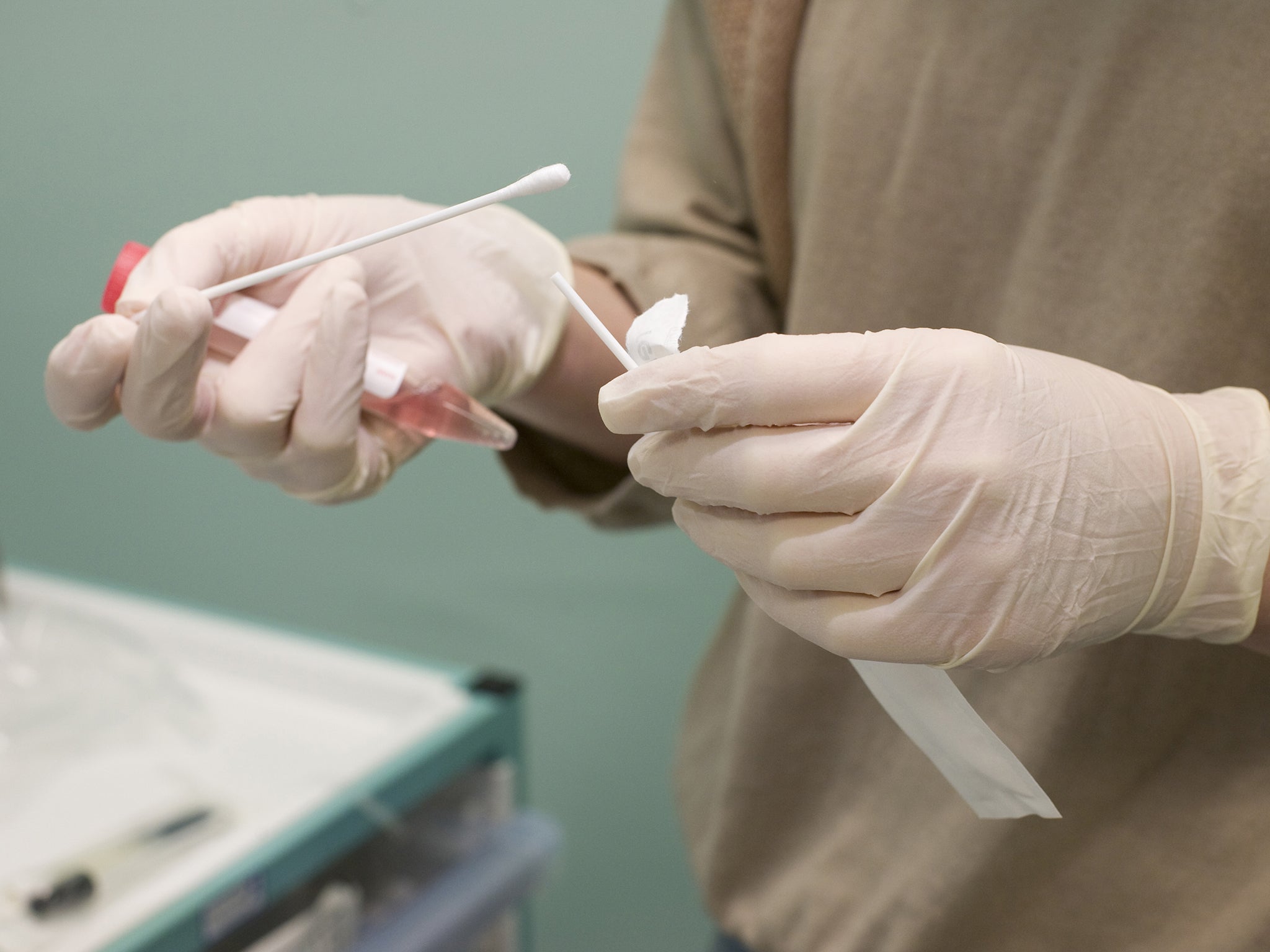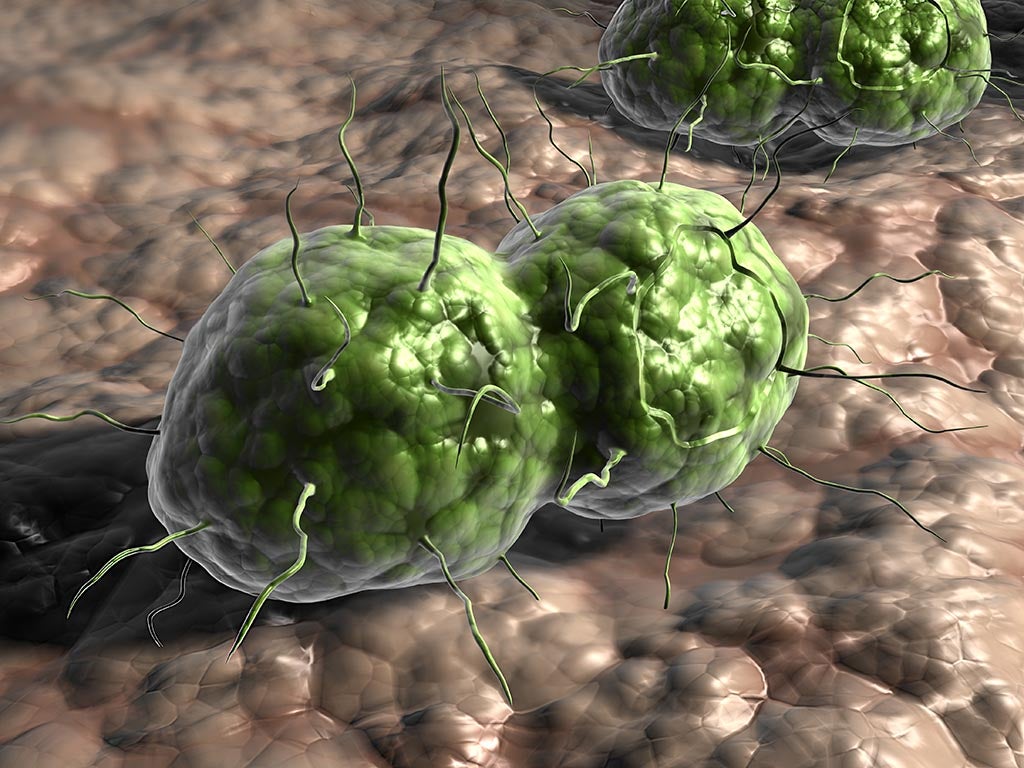The Independent's journalism is supported by our readers. When you purchase through links on our site, we may earn commission.
Why it's important to get screened for STIs, even if you have no symptoms
50% of men and 80% of women will not experience symptoms with chlamydia. But untreated, it can cause pelvic inflammatory disease in women, and epididymitis (a testicle infection) in men - and even infertility for both

Your support helps us to tell the story
From reproductive rights to climate change to Big Tech, The Independent is on the ground when the story is developing. Whether it's investigating the financials of Elon Musk's pro-Trump PAC or producing our latest documentary, 'The A Word', which shines a light on the American women fighting for reproductive rights, we know how important it is to parse out the facts from the messaging.
At such a critical moment in US history, we need reporters on the ground. Your donation allows us to keep sending journalists to speak to both sides of the story.
The Independent is trusted by Americans across the entire political spectrum. And unlike many other quality news outlets, we choose not to lock Americans out of our reporting and analysis with paywalls. We believe quality journalism should be available to everyone, paid for by those who can afford it.
Your support makes all the difference.The unfortunate truth about sexually transmitted infections (STIs) is that there are many people who may be unaware they have been infected. Without knowing you may be at risk, you could pass it on to future partners.
Public Health England recently released updated figures on the rates of STIs, with 440,000 new cases diagnosed in 2014 in England alone. Chlamydia tops the list, accounting for 47% of these diagnoses.
Over the last year, 120,000 men and 85,000 women in England were diagnosed with chlamydia. Rates of gonorrhoea between 2005 and 2014 have increased by 98%.
Who is at risk of an STI?
The National Chlamydia Screening Programme identified that the patients most at risk of an infection are those under the age of 25, who do not routinely use condoms, have a new sexual partner, or have had more than one sexual partner in the previous year.
The myth I hear most often in my practice about sexual health is that it’s only those people who have multiple sexual partners who get STIs.
The reality is that it’s not just your own sexual history that you have to worry about, but also your partners’. STIs can occur in any patient who is sexually active regardless of gender, age or sexual orientation.
Screening for STIs
Sexual health is an important part of our general health yet is something that is often neglected, perhaps out of embarrassment or apprehension about the process of diagnosis and treatment.
The process of testing has evolved over time and in many cases can be done via a urine sample or blood test. In some cases your GP or sexual health practitioner might need to perform an examination.
In addition to services offered by GPs, sexual health clinics can be found up and down the country and are able to help with any concerns about sexual health.

For some patients, the decision to get tested is easy - they may have been told by a partner that they are at risk of developing an STI, or they may have noticed symptoms themselves.
For other patients, the decision to get tested may prove more difficult. The latest research suggests that approximately 50% of men and 80% of women will not experience symptoms with a chlamydia infection.
Symptoms of a sexually transmitted infection
Only some patients will develop symptoms of an STI, with the most common general symptoms being a painful rash on the genitals, pain when passing urine, symptoms of discharge, bleeding after sex or between periods, testicular soreness or pelvic pain in women.
Symptoms of chlamydia and gonorrhea can start within a few weeks of infection, but could present months later once the infection has started to affect other parts of the body. The longer the infection goes untreated, the higher the chance of developing complications.
Treatment
The good news is that treatment is often straightforward. Chlamydia and gonorrhea can be treated with antibiotics. Genital warts and herpes symptoms can be managed, but both are life-long conditions as the viruses that cause them cannot be cleared from the patient’s system and can flare up over time, needing further treatment.
Whilst there is no cure for HIV, there are now treatments that enable people to lead longer and healthier lives.
It’s not easy to let a previous or current partner know about a positive test result, but it is vital. With the complications of STIs being far-reaching, early treatment is imperative.
The impact of an untreated STI

Sadly the effects of an STI can be devastating to a patient’s physical and emotional health.
Complications of chlamydia can include a condition called pelvic inflammatory disease (PID) in women. In PID, the infection spreads to other parts of the reproductive system and can cause symptoms of chronic pelvic pain and even infertility.
In men, chlamydia infections that are untreated can cause epididymitis (an infection in the testicles) and has also been linked to infertility.
I have seen a few cases in my practice of young women and couples who are unable to have children due to untreated STIs, and the effects can be heart-breaking.
Gonorrhoea can also lead to serious problems if left untreated. In women, it can cause PID, potentially leading to infertility. In men, it can cause painful testicle and prostate infections and reduced fertility.
If it spreads to other parts of the body, it can cause swollen joints, skin irritation and even inflammation of the heart, brain and spinal cord.
Practising safe sex and taking an active role in protecting your sexual health is essential to prevent the long term complications of STIs, not only for you but also for your sexual partners. Don’t be put off seeking screening and testing through embarrassment. There’s too much at stake.
Dr Alexandra Phelan is a practising NHS GP and member of the Pharmacy2u.co.uk Online Doctor Service team.
Join our commenting forum
Join thought-provoking conversations, follow other Independent readers and see their replies
Comments